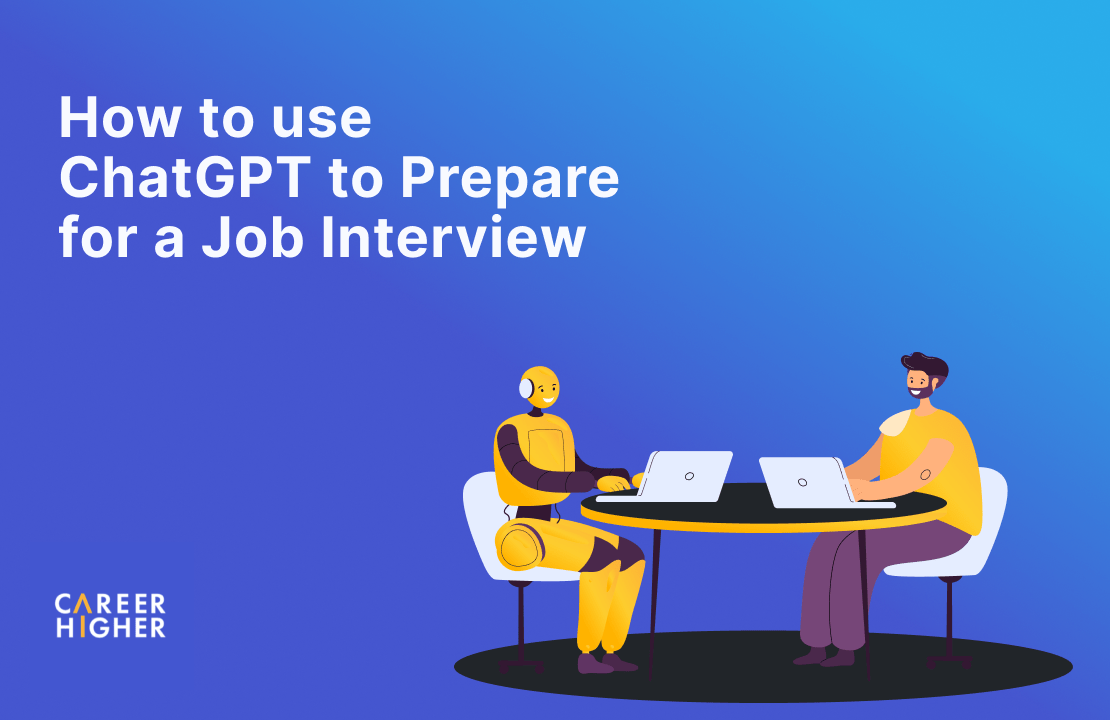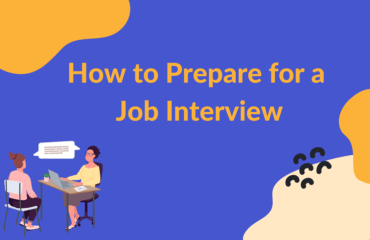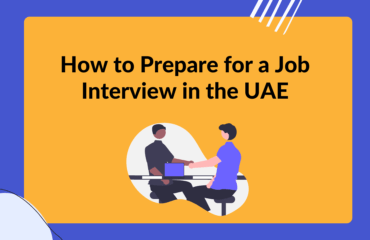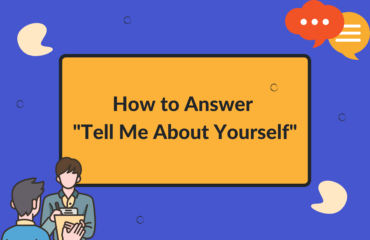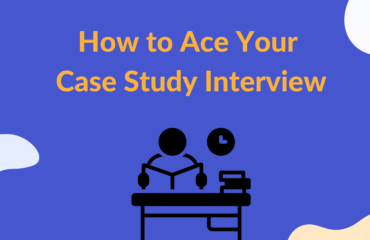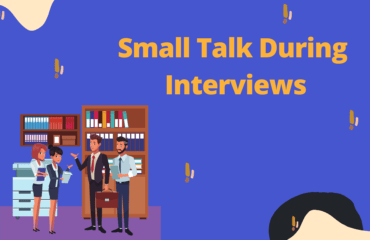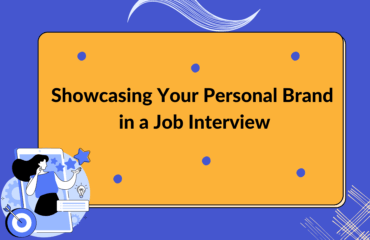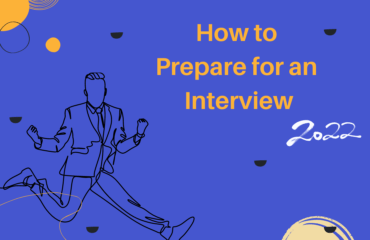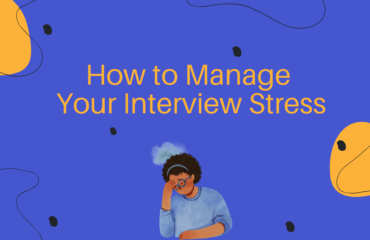Table of Contents
Job interviews can be stressful, right? Besides, preparing for one requires a lot of work! You need to research the company, anticipate what questions you may be asked, prepare your answers, and practice them. All of this can be quite time-consuming and draining. This is where ChatGPT can make your life easier!
ChatGPT is an invaluable tool for interview preparation, offering a range of benefits. It can help you predict possible interview questions, refine your answers, and even conduct a mock interview. In this guide, we’ll explore how this powerful artificial intelligence tool can support you in your interview preparation process. So, let’s get started!
Understanding the interview process
Before we delve into exploring how you can utilize ChatGPT for interview preparation, let’s first review the interview process. Interviews are a critical component in the hiring process, enabling potential employers to assess your qualifications, skills, and suitability for the target position. There are several types of interviews, such as screening interviews, pre-recorded interviews, panel interviews, and technical interviews, among others. Knowing what type of interview you’re going to face is the first and foremost step in interview preparation.
In your interview invitation, the employer is likely to state what kind of interview you should expect. Remember, to pay close attention to the instructions provided. Each type of interview serves a different purpose and comes with its own set of unique challenges. You can use ChatGPT to stimulate different types of interviews and adapt your preparation strategies accordingly.
How to use ChatGPT to prepare for a job interview?
1) Utilizing ChatGPT to research the company and role
a) Researching the company
One of the key steps in effective interview preparation is researching the company you’re applying to. This will help you understand what your target employer is looking for and will allow you to tailor your responses accordingly. You could leverage ChatGPT to conduct initial research about the company. To obtain the latest information, you could use ChatGPT in browser mode (available for only ChatGPT plus members). Here is an example:
Prompt: I am applying to <insert company name> for the role of a <insert job title>. I want you to provide me with key insights about the company’s vision, mission, values, any recent news and developments, and any other relevant information to prepare for my upcoming interview.
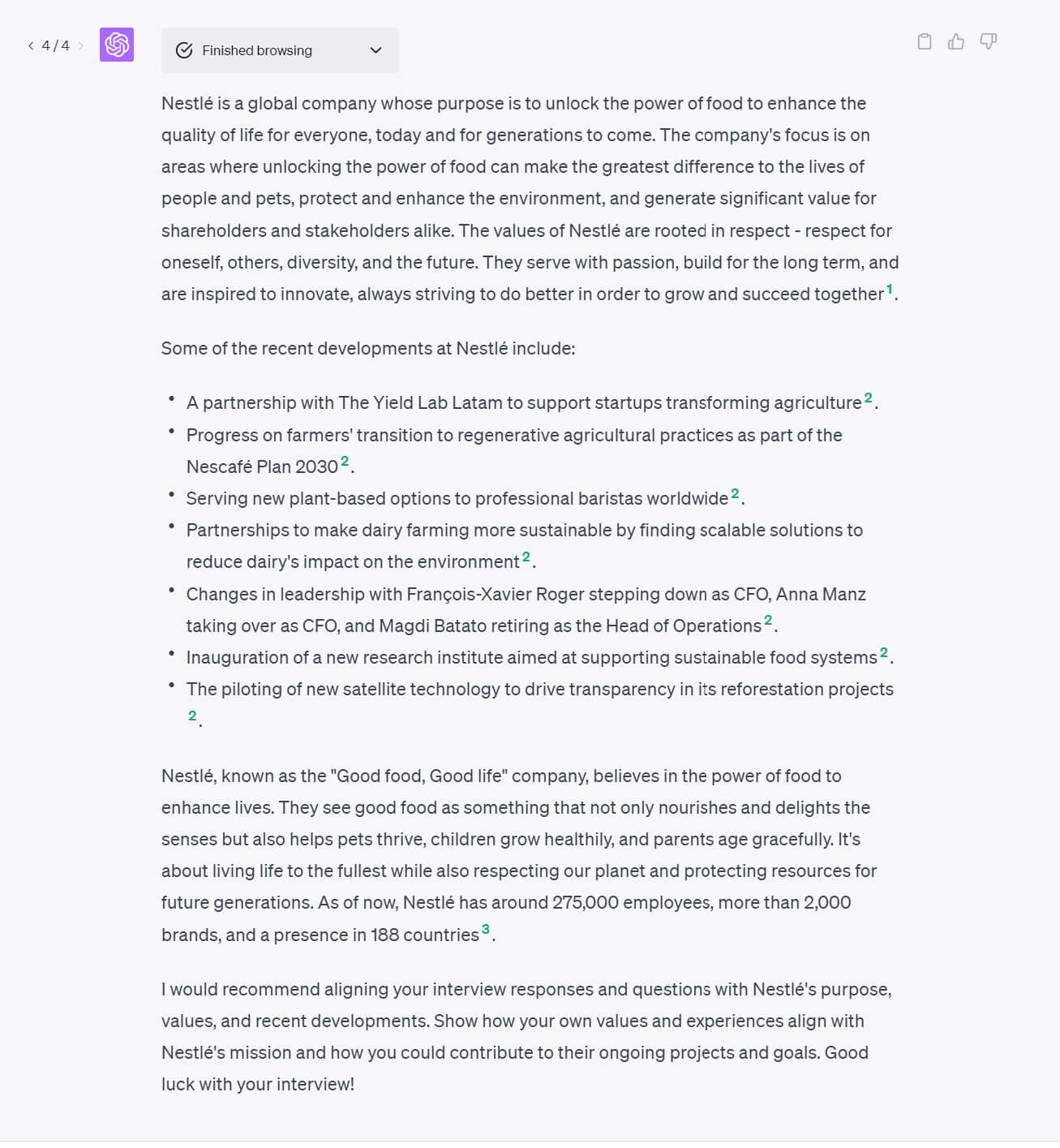
In the above example, ChatGPT generates good insights about the company to start your preparation. However, it doesn’t provide complete information. Thus, we suggest cross-checking the information and complementing it with data from other reliable sources like the company’s official website, social media platforms, trusted news sources, etc. Don’t rely solely on the chatbot for your research, remember to put in your own efforts and exercise critical judgment during your research.
b) Researching the target role
Besides researching the company, you can use ChatGPT to gain insights into the specific role you’re applying for. You could leverage the AI tool’s capabilities to identify the key skills and responsibilities associated with the target position. Also, you could ask ChatGPT why those particular skills are important. Asking the why can give you helpful insights into what makes a successful candidate. Here is a prompt you could use:
Prompt: What are the key skills, qualifications, and experiences that the company is seeking in the candidate for <insert job title> role, and explain why?
Here is the job description of the role I am applying for <paste job description>
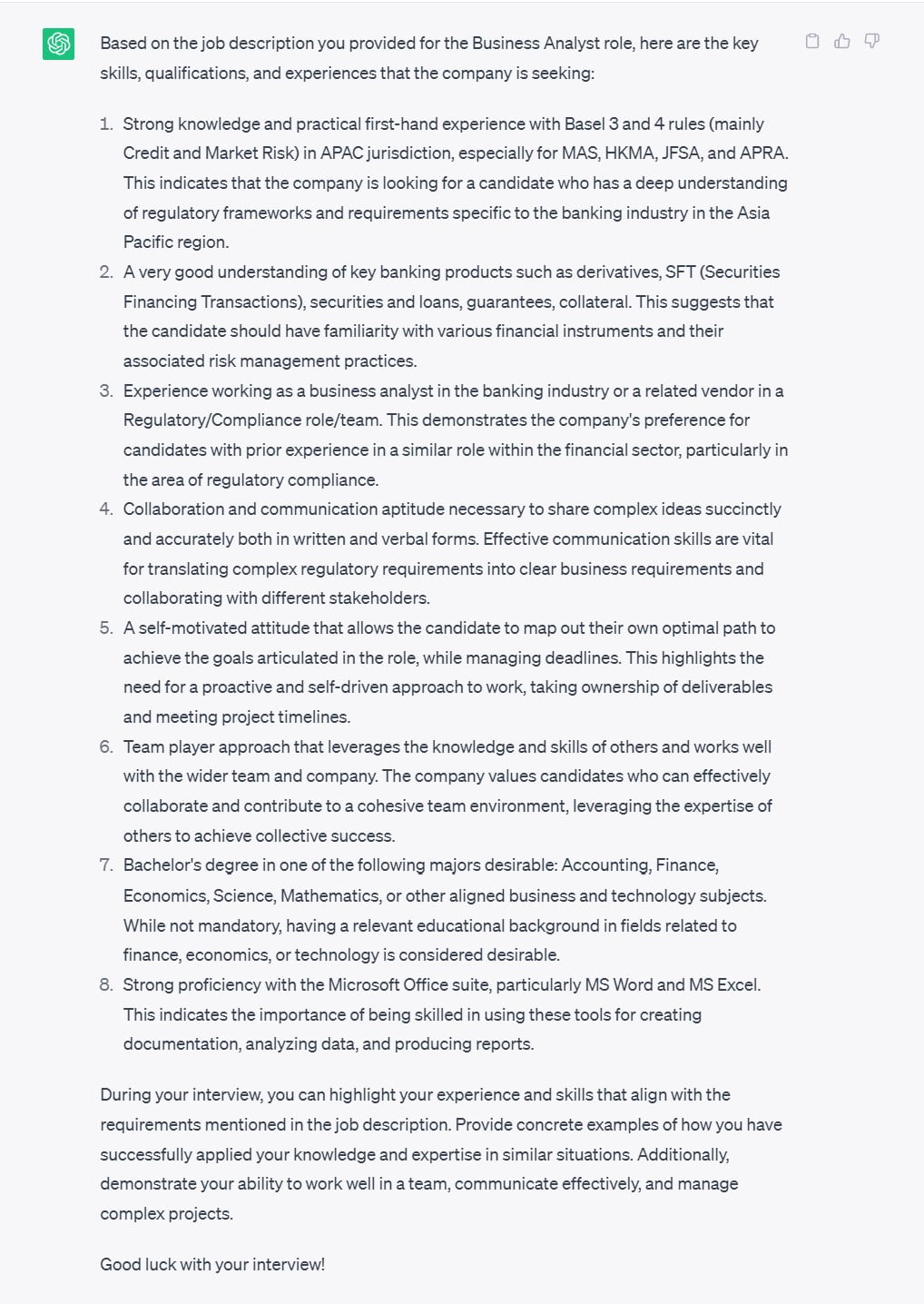
To gain a deeper understanding of the role, consider using the following additional prompts:
What are some top interpersonal skills that are highly valued for this position?
How could this role contribute to the overall success of the company?
What could the day-to-day tasks of some individuals in this role look like?
These prompts will help you explore the role from different angles and gain a comprehensive understanding of the skills and responsibilities required.
2) Harnessing ChatGPT to anticipate interview questions
A good way to use ChatGPT in your interview preparation is to ask the chatbot to generate a list of sample interview questions that employers typically ask for your target role. This will give you a solid idea of what to expect in the interview so you can prepare for it accordingly. For a more targeted response, remember to include your job description in the prompt.
Here is an example:
Prompt: I am applying for <job title> at <company name>. I have a background in <mention your key experiences, skills, and background>
Here is the job description <paste job description>.
Could you generate a comprehensive list of common interview questions specific to this role based on my background and the provided job description?
Here is the output generated by ChatGPT:
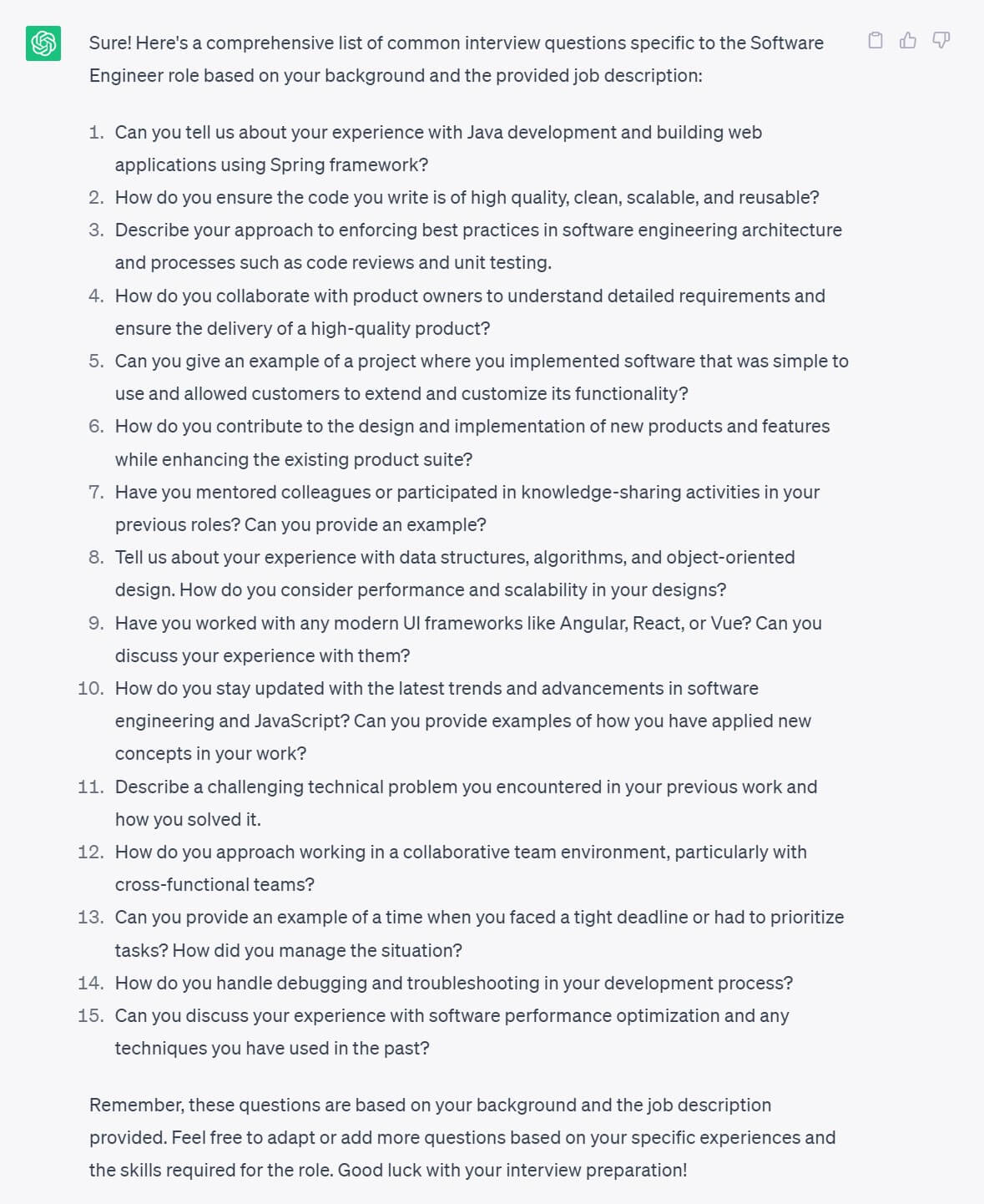
In the above example, ChatGPT generates a good mix of technical and behavioral interview questions. However, keep in mind that while ChatGPT can provide valuable insights, it may not detect the nuances and specific requirements that a human eye can. Thus, we suggest supplementing the AI-generated list with your analysis and expertise or seeking guidance from a trusted career coach.
Further, to ensure a well-rounded preparation, we suggest researching the common interview questions that are typically asked across various roles and industries. Here is a prompt you could use:
Prompt: Generate a comprehensive list of typical interview questions commonly asked across various roles and industries.
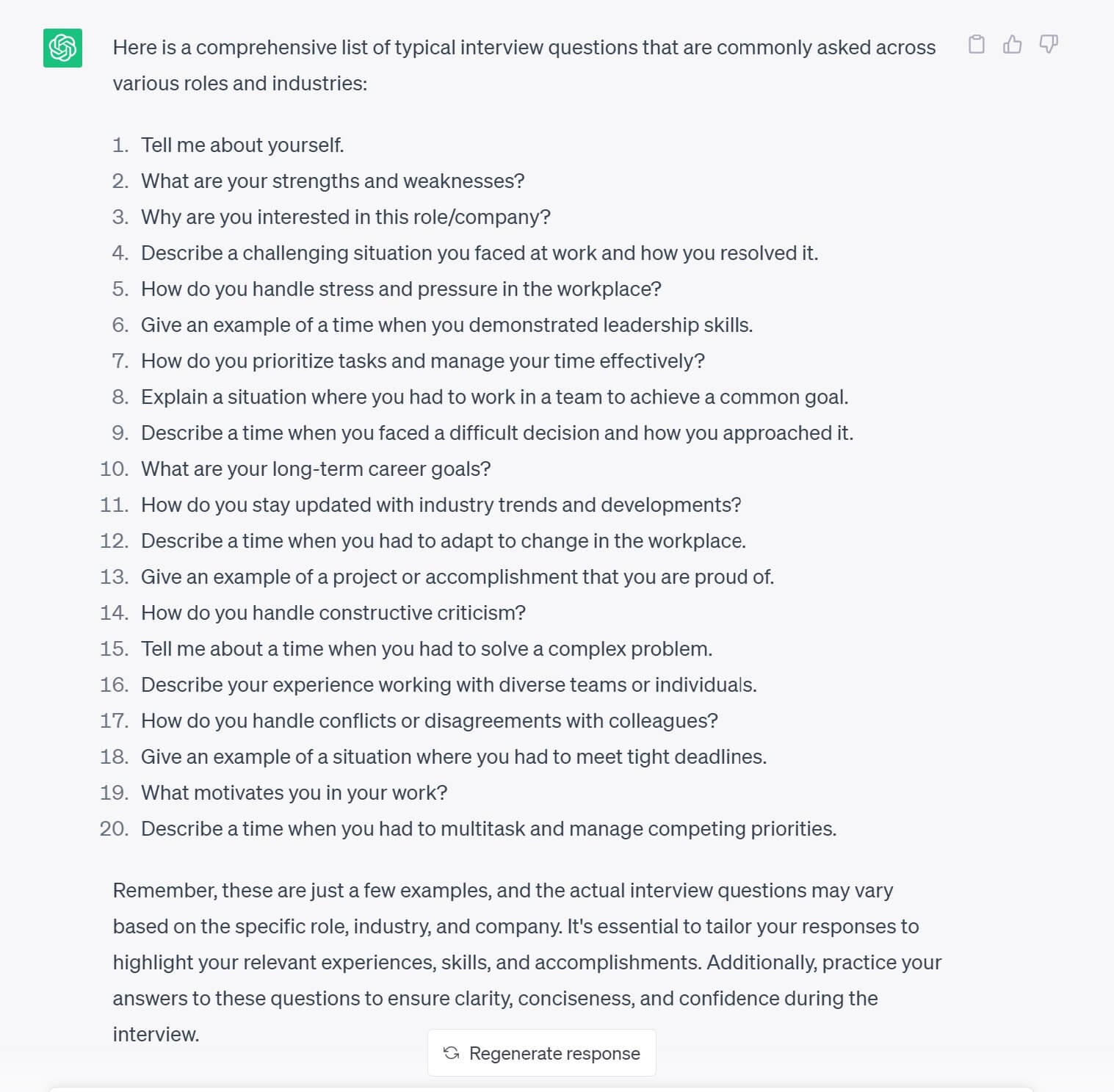
This broader prompt allows ChatGPT to provide a diverse set of possible interview questions, beyond the specific role and company you are targeting.
Here are additional prompts you could use to generate a list of possible interview questions:
Summarize the 10 most important questions and categorize them into motivational, behavioral, and technical questions for the interview. Here is the job description <paste job description>.
Can you suggest questions that will help the interviewer gauge my passion and motivation for this role?
Could you suggest any unconventional or out-of-the-box questions that the interviewer may ask?
Suggest any domain or industry-specific questions that could be asked for this particular role.
What questions would the employer ask to assess my fit with the company’s values, mission, and culture?
What are some scenario-based questions that the interviewer can ask for this role?
3) Leveraging ChatGPT to craft interview answers
ChatGPT can greatly help brainstorm and craft answers to interview questions. While your answers must be personalized, unique, and based on your personal experiences, ChatGPT can help organize your thoughts and generate ideas, especially if you’re feeling stuck.
To generate interview answers, input the specific question into the AI chatbot. For behavioral questions, you could ask ChatGPT to generate answers using the S.T.A.R (Situation, Task, Action, Results) framework. This method will help you prepare clear and concise responses that effectively demonstrate how you acted in specific situations. Also, we recommend including your resume in the prompt to obtain more context-specific responses. Here is an example:
Prompt: Draft an answer to interview question <insert question>, using the S.T.A.R format. Here is my resume <paste resume>.

While ChatGPT is a powerful tool, it may not fully comprehend your personal experiences or achievements. As a result, the generated answer may be generic or not precisely accurate to your specific situation. Thus, we suggest reviewing the response and using it as a starting point, tailoring it as per your unique narrative and personal voice.
4) Utilizing ChatGPT to practice mock interviews
A useful activity in the interview preparation process is conducting a mock interview with a friend, colleague, or an interview specialist. However, if you don’t have anyone to help you out, you could turn to ChatGPT. ChatGPT can assist you by assuming the role of an interviewer and guiding you through a back-and-forth dialogue.
Here is an example of a mock interview with ChatGPT:
Prompt: I am <insert name>, and I am appearing for a job interview for the role of a <insert job role> at <insert company name>. Here is the job description <paste job description>
Could you act as an interviewer and ask me questions one by one?

Now, input your response in the chatbot and it will move on to the next question or ask a follow-up question.
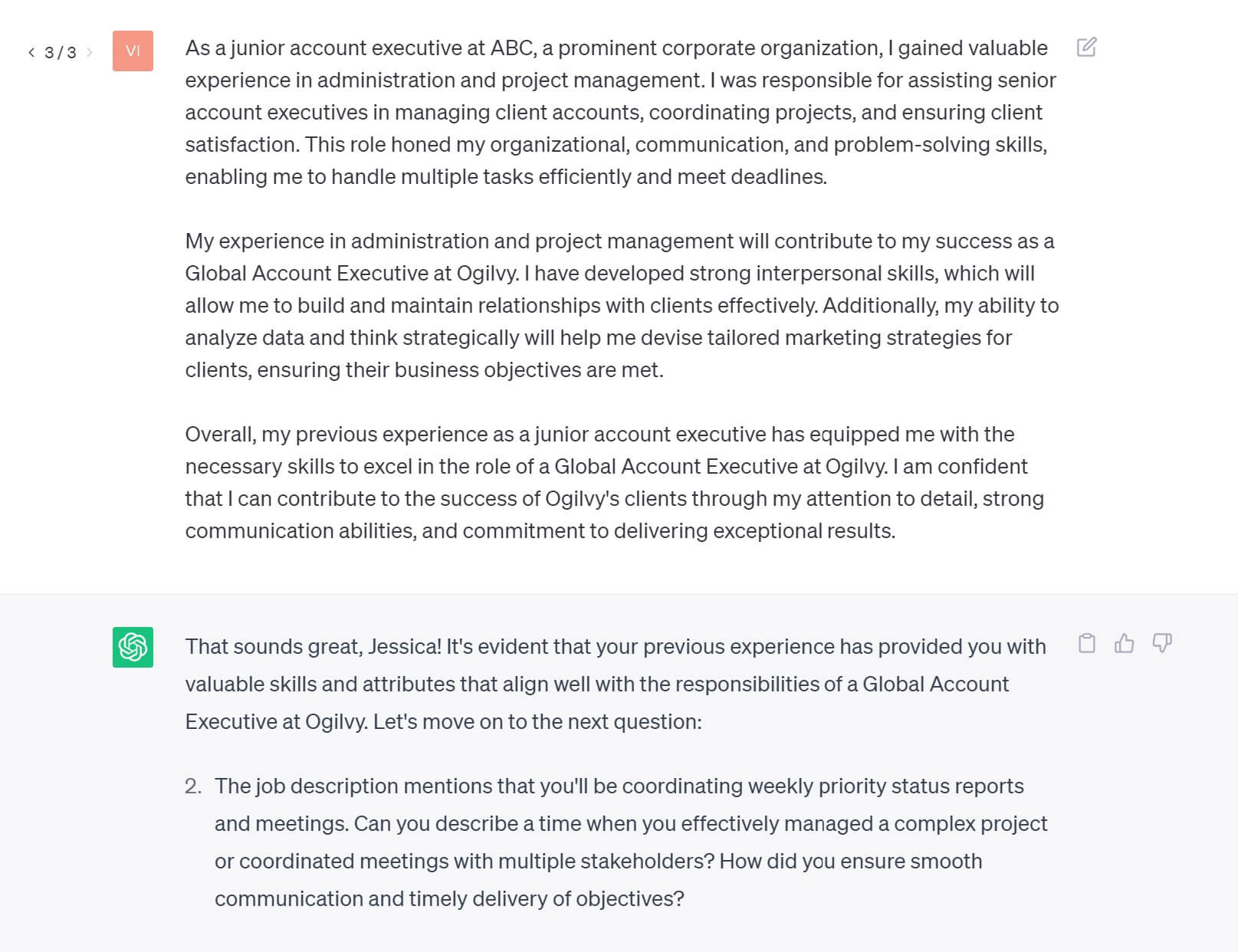
Be mindful that ChatGPT’s responses are formulated based on common patterns and may not accurately reflect the subtleties of a real-life interview scenario. As such, utilize the generated questions and answers to guide your reflections and analysis.
5) Asking ChatGPT for feedback on your answers
After finishing your mock interview, review the conversation to identify areas of improvement. ChatGPT can be a helpful resource for gaining feedback on your answers. In the same chat, you could use the following prompt:
Prompt: Provide feedback on my answers to your questions, and explain how I could improve my answers.

Carefully review the feedback you receive from ChatGPT, and consider how you could incorporate its suggestions into your answers. Also, seek guidance from career experts, friends, or family to hone your interviewing abilities.
6) Gaining interview advice from ChatGPT
Feeling nervous about your interview? Treat ChatGPT like a friend and ask the chatbot for advice. The AI tool can give you solid interview tips on various topics, from using body language to dressing appropriately, to impressing your interviewer. You can even discuss specific questions that you have been considering. For instance, how should you dress for a job interview in a big city for an entry-level IT position?
Here are some prompts you could use:
I am applying for <insert job title> at <insert company name> in <insert industry>. How should I dress for my interview?
What are some mistakes I should avoid in the job interview?
How should I structure my interview answers to impress the interviewer?
What trends in the Finance industry should I be aware of?
What questions can I ask the interviewer?
Here is an example of the output generated by ChatGPT:
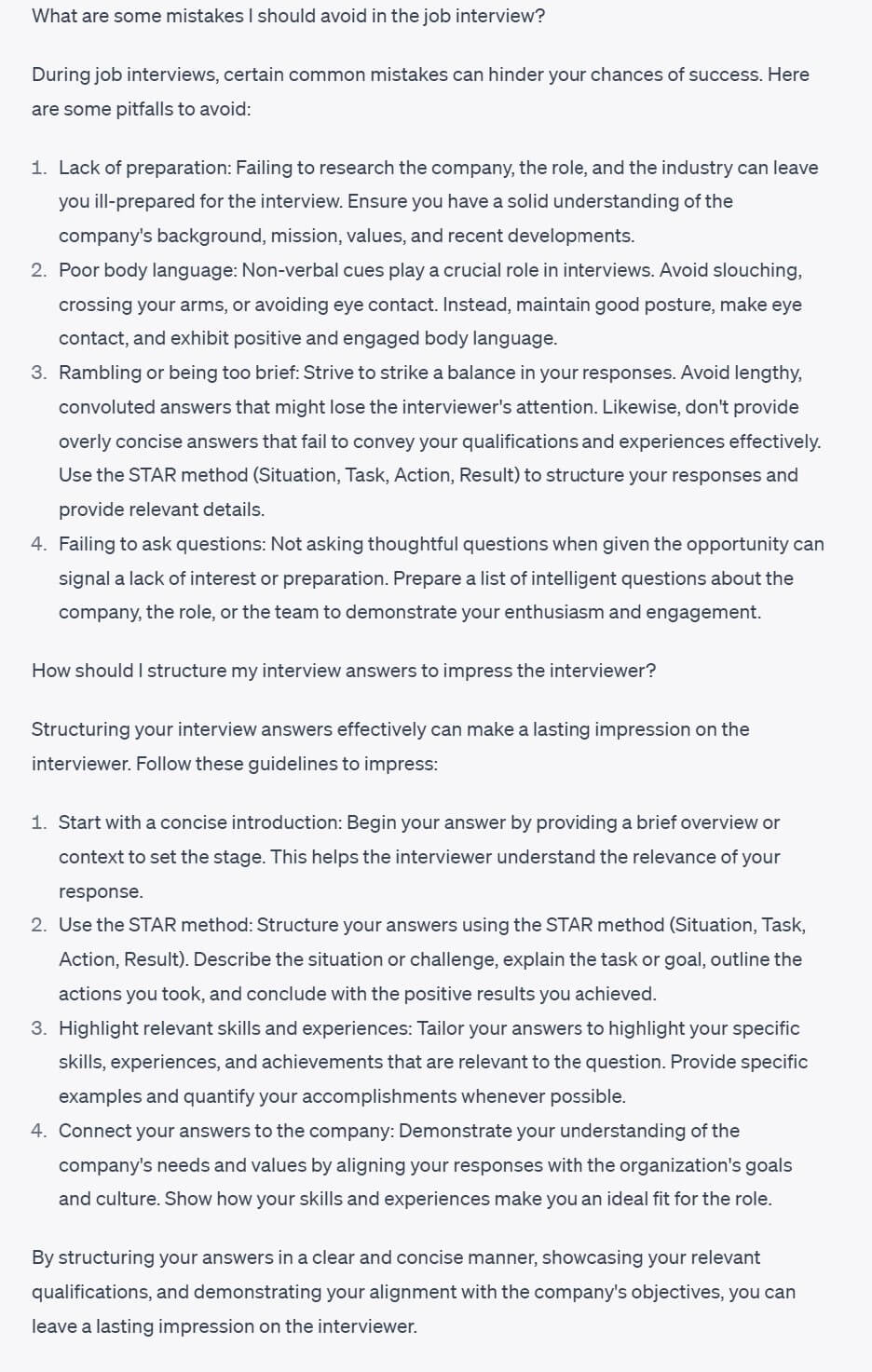
By tapping ChatGPT’s extensive knowledge base, you can gain invaluable insights and advice that will aid your interview preparation.
What are some limitations of ChatGPT when it comes to interview preparation?
Despite its advanced capabilities, ChatGPT has its own set of limitations that you should take into consideration while preparing for your upcoming interview. Here are some of its key drawbacks:
- No real-time engagement: ChatGPT operates as a text-based model, which means that it lacks the dynamicity and spontaneity of real-time, face-to-face interaction that you’re likely to encounter in your job interview. ChatGPT may not offer immediate feedback or adjust itself to the nuances of a live conversation. Thus, you can’t rely on it completely for a well-rounded preparation.
- Limited understanding of personal experiences: As ChatGPT does not have access to your individual experiences, its generated responses may not take into account your unique background and achievements. As a result, it may give generic or irrelevant feedback.
- Limited knowledge: While ChatGPT may contain vast amounts of data, it cannot access the same breadth and depth of knowledge as a human can. Thus, its answers about industries or companies may not always be accurate or up-to-date. We recommend not depending solely on it for researching industry trends or gaining company insights.
- Inability to analyze nonverbal cues: ChatGPT cannot analyze non-verbal cues such as body language, tone of voice, or facial expressions. These cues play a significant role in communication during an interview and ChatGPT may not be very useful too for this aspect.
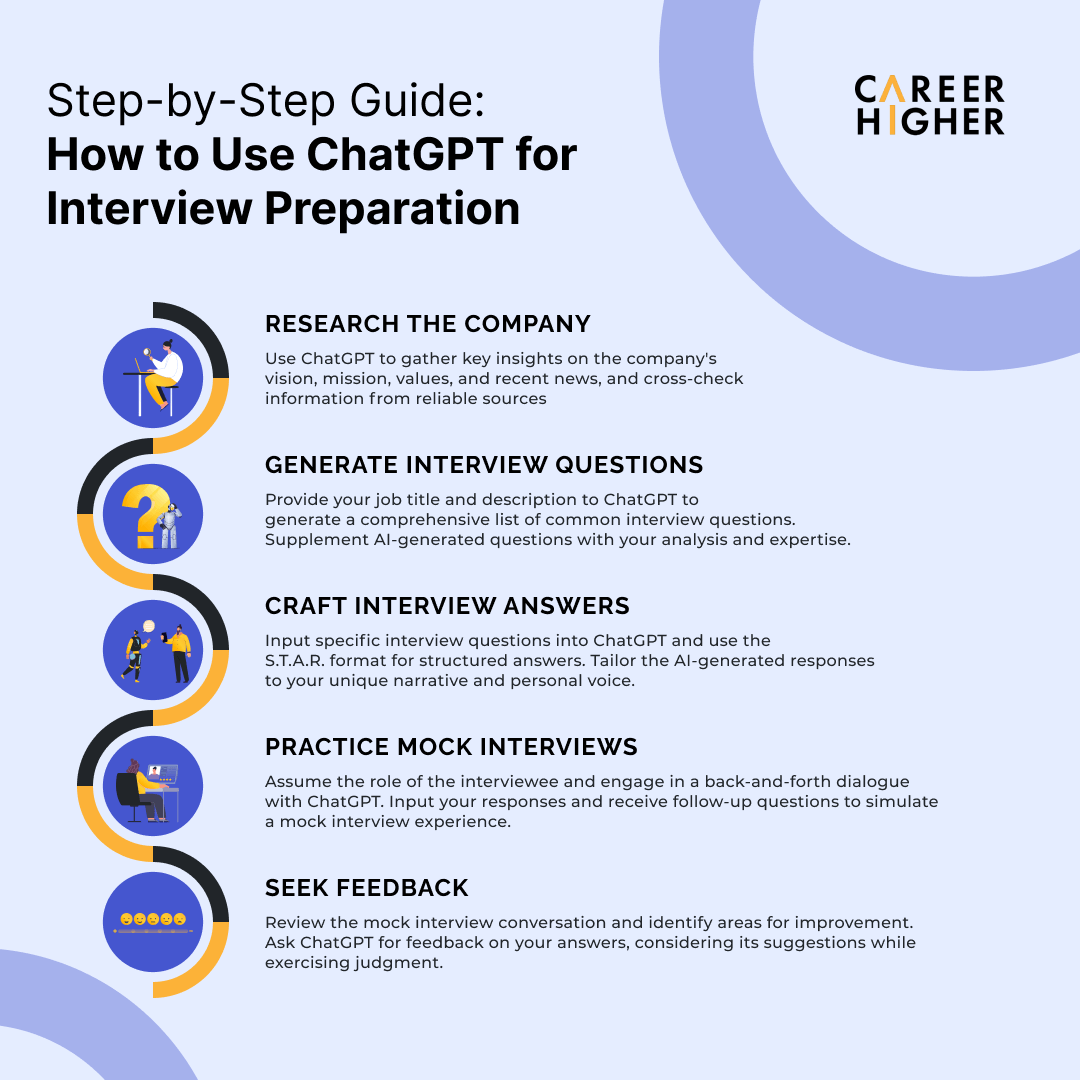
In conclusion, ChatGPT is an excellent tool for honing your interview skills. But, remember technology cannot substitute human judgment. Therefore, it is crucial to view ChatGPT as a supplementary resource to complement your own preparation efforts. If you’re looking for comprehensive interview preparation, consider reaching out to expert interview specialists for help.
